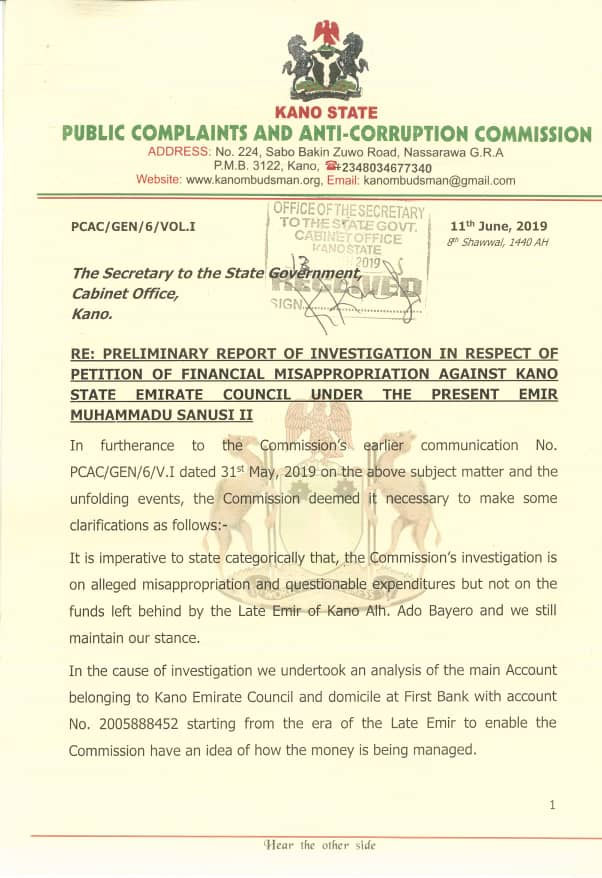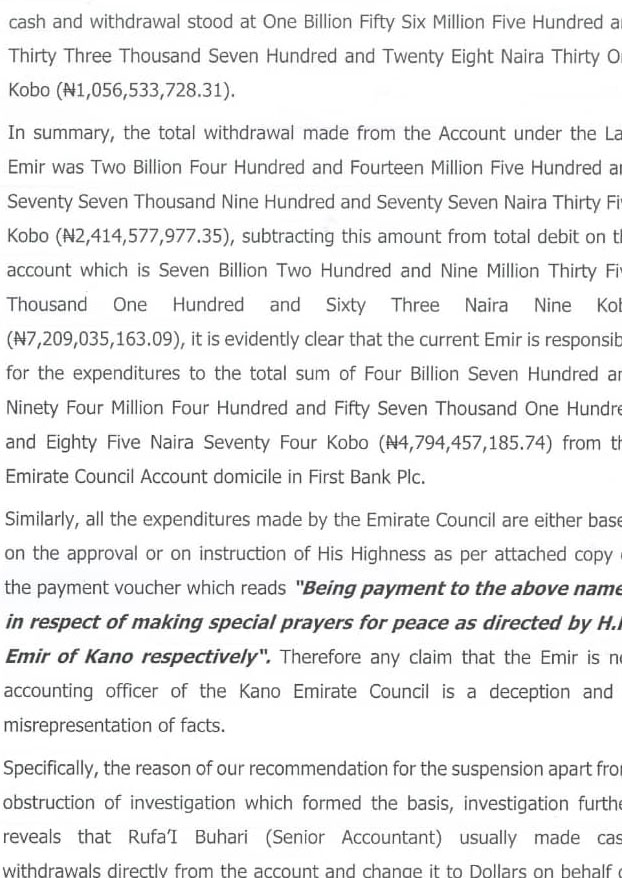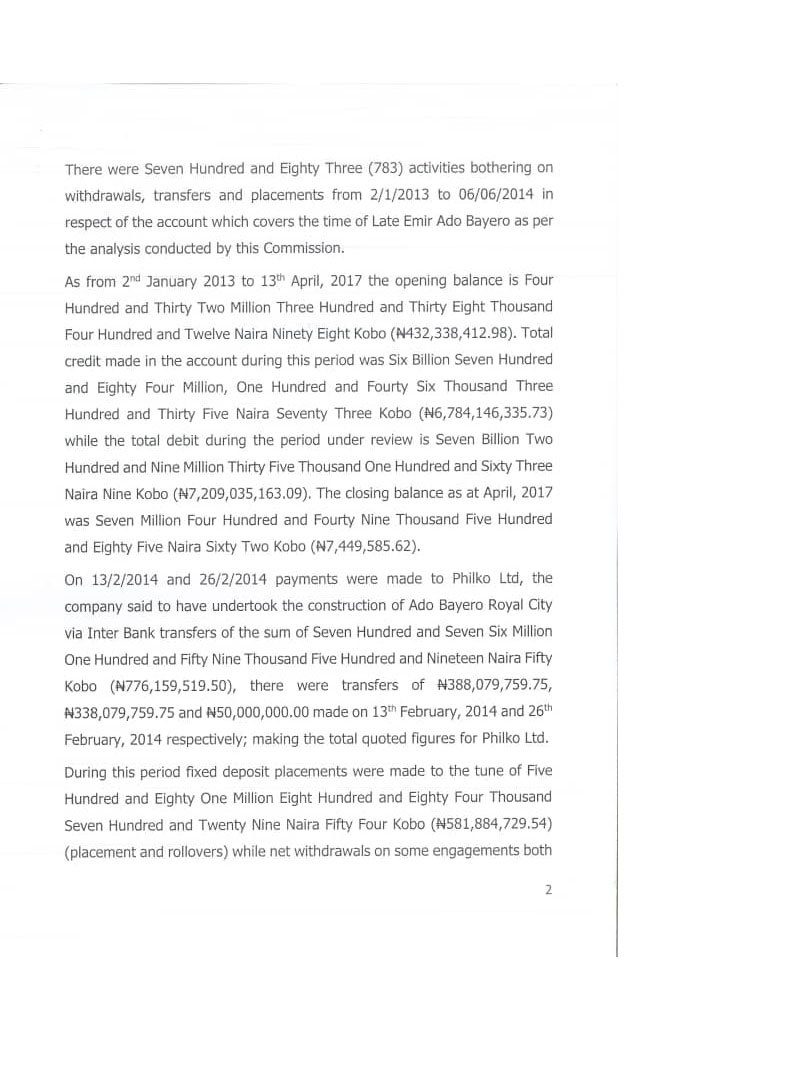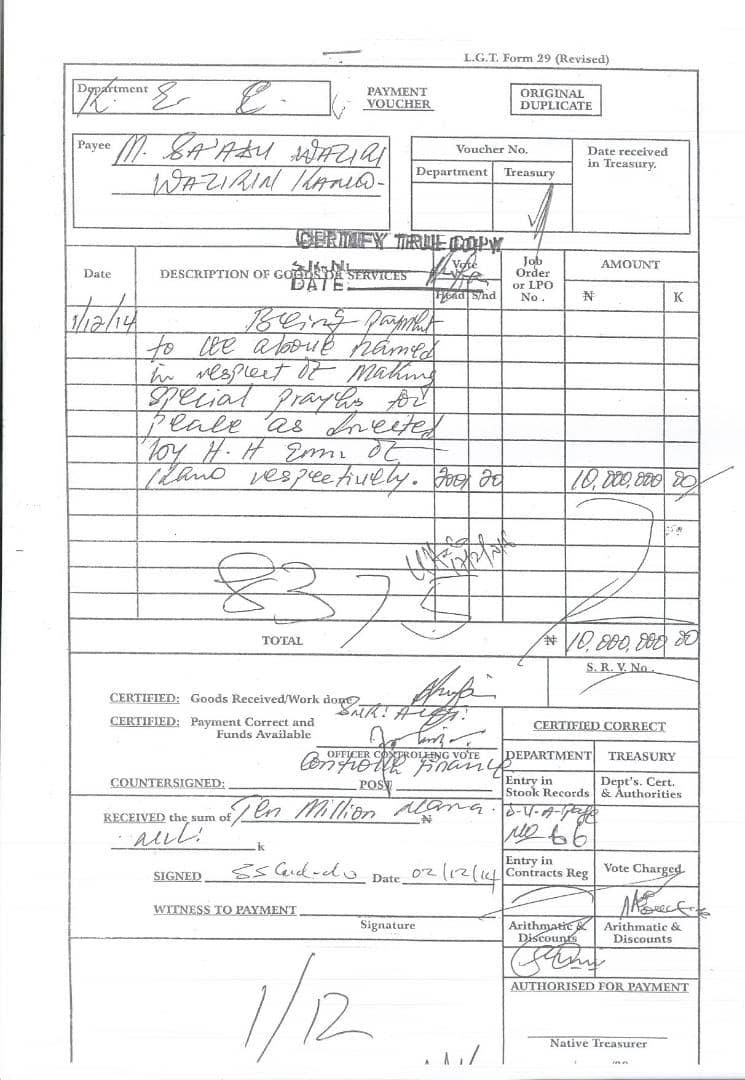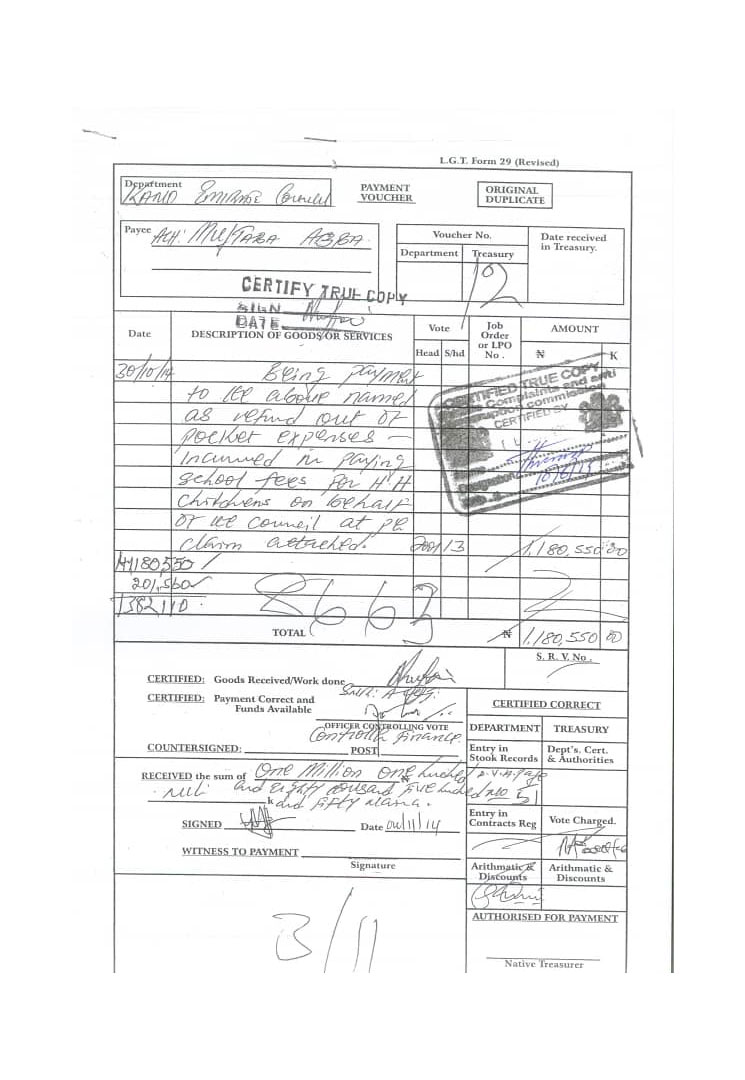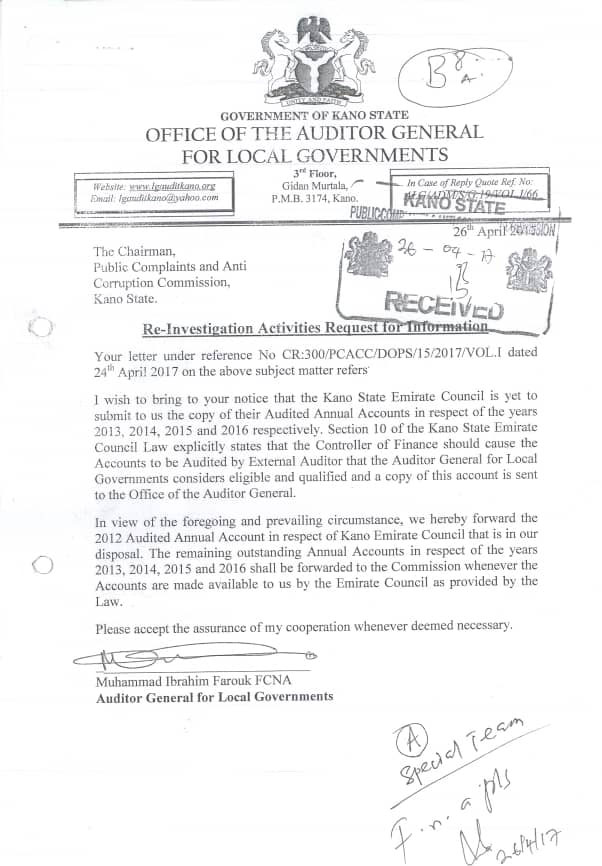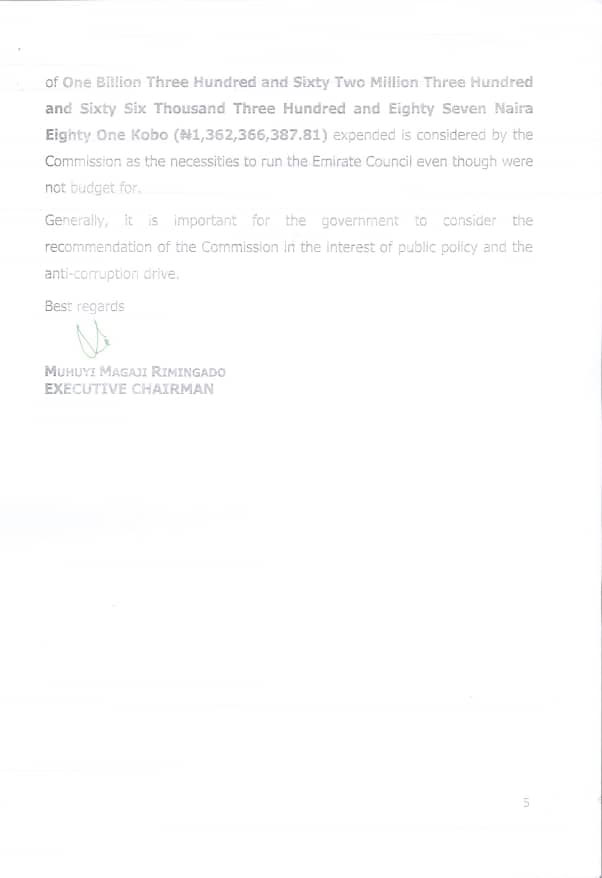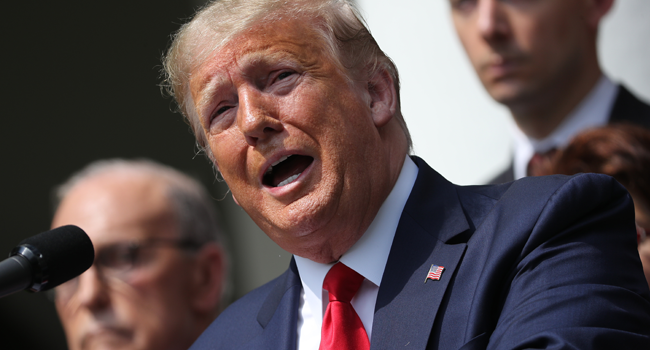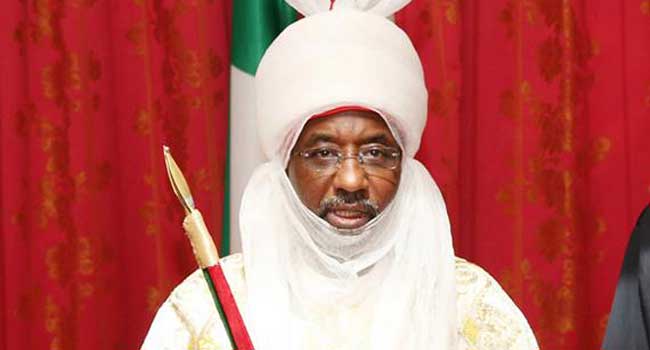
The Kano State Public Complaints and Anti-Corruption Commission has defended its investigation into allegations of corruption against the Emir of Kano, Muhammadu Sanusi II, insisting that the Emir authorised spending by the Emirate.
In a letter dated June 11, 2019 and addressed to the Secretary to the Kano State Government, a copy of which was seen by Channels Television, the anti-graft agency defended its investigation and findings and attached documents allegedly showing that the Emir authorised the expenses incurred.
The seven-page letter was signed by the commissions Executive Chairman, Muhuyi Magaji, and it countered the Emirs response to a query issued to him by the state government.
READ ALSO: Kano Anti-Corruption Commission Recommends Sanusis Suspension
Emir Sanusi in his response to the query had stated that he was not the accounting officer of the Emirate, but the commission said, All expenses made by the Emirate Council are either based on the approval or instruction of his Highness.
It added, Therefore, any claim that the Emir is not Accounting Officer of the Kano Emirate is a deception and a misrepresentation of facts.
According to the commission, the initial amount at the emirates bank account with First Bank prior to the death of late Ado Bayero was over N7 billion but after a few withdrawals, Emir Sanusi inherited N4. 7 billion. The bulk of this, the commission alleged, was illegally spent.
It, therefore, urged the state government to implement its initial recommendations in the interest of public policy and the anti-corruption drive.
See the document below:


